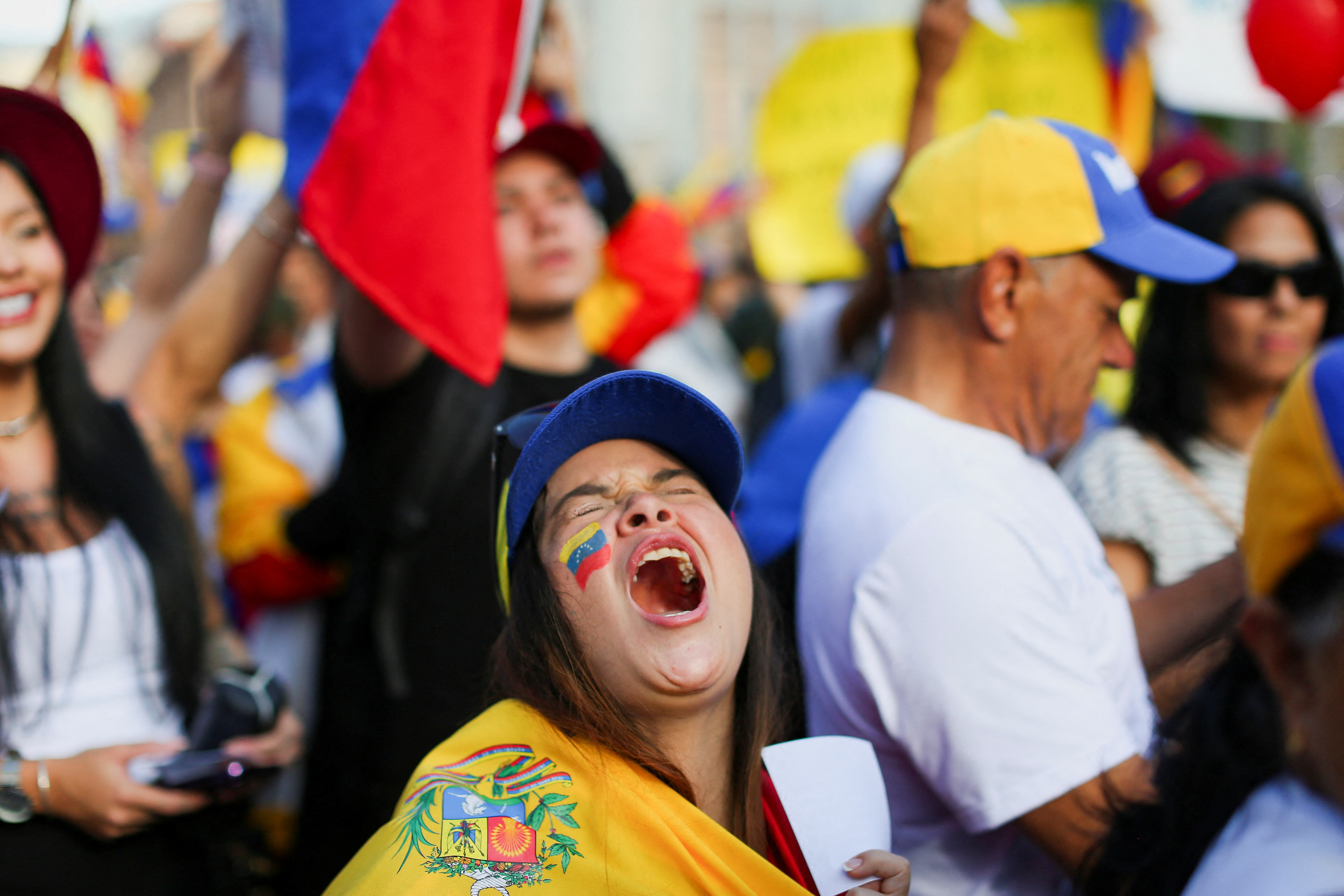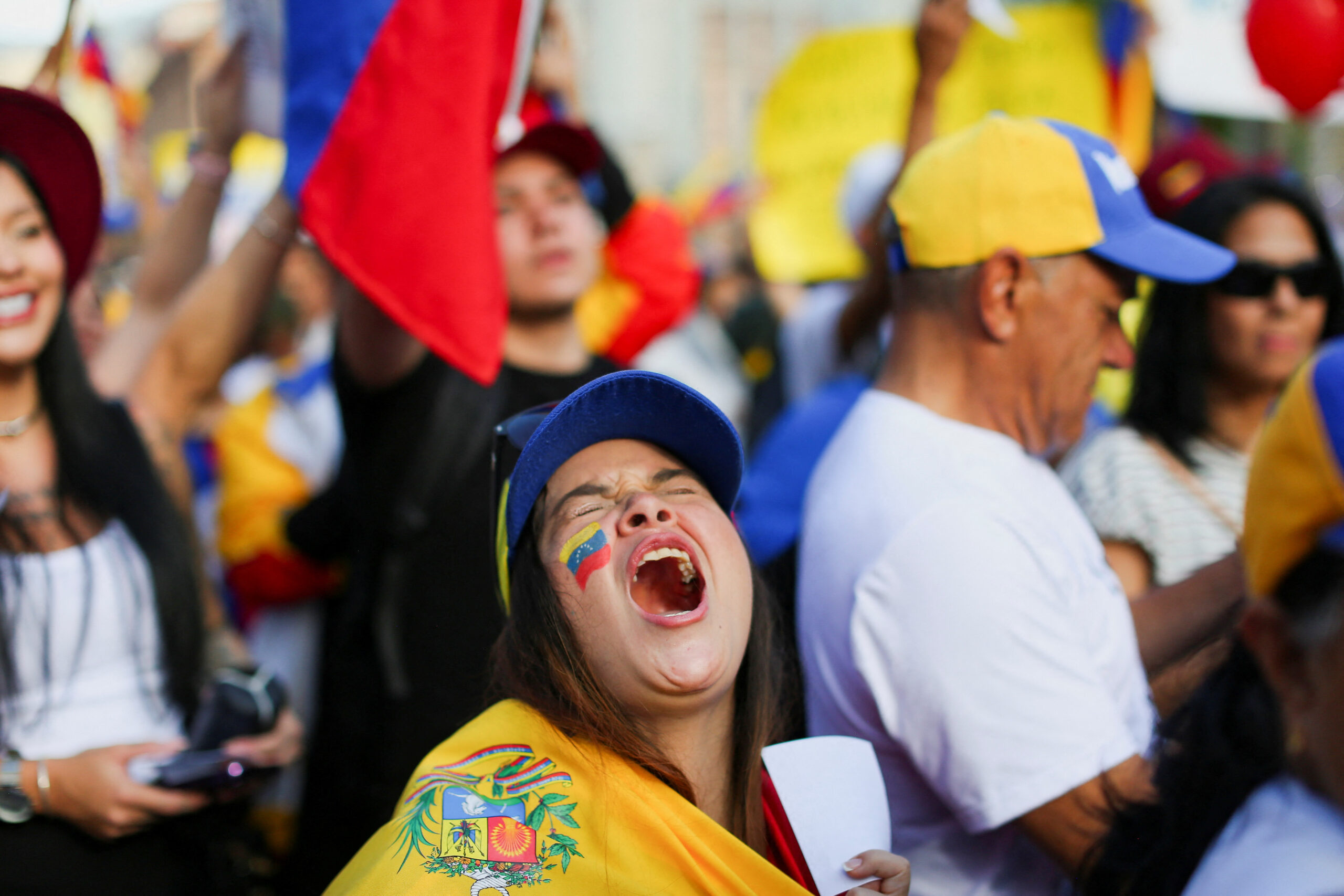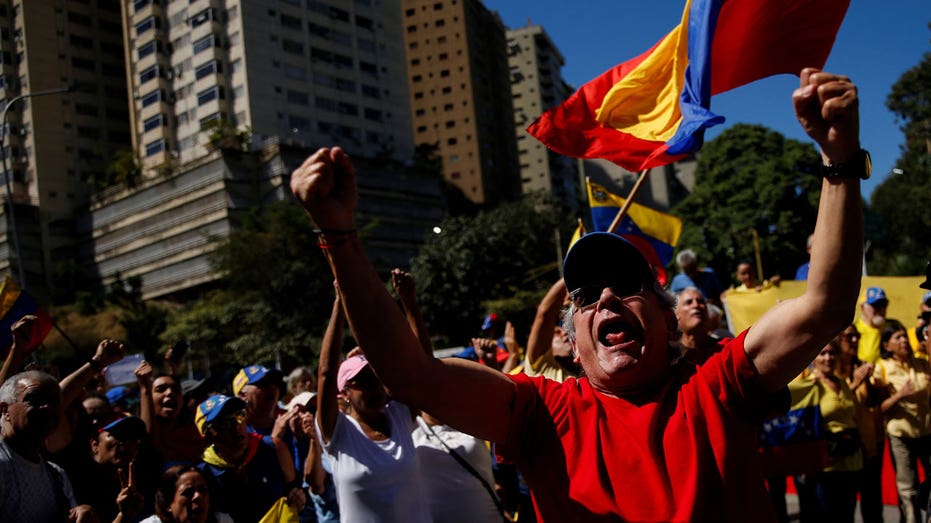
Venezuelan Opposition Groups Stage Nationwide Protests Ahead of Controversial Inauguration
Date: [Insert Date]
Protests Sparked by Disputed Elections
Venezuelan opposition groups, under the leadership of María Corina Machado—who had been in hiding—organized nationwide protests on Thursday. This display of dissent represents a final effort to challenge the authority of President Nicolás Maduro, who is poised to be sworn in for a contentious third six-year term on the following day.
The tensions in Venezuela stem from a protracted dispute surrounding the results of last year’s presidential election, a poll both the ruling party and the opposition claim to have won. While Maduro’s electoral authority and the nation’s highest court proclaimed him the victor of the July election, they have failed to publish detailed vote tallies, fueling widespread skepticism regarding the election’s legitimacy. This skepticism is exacerbated by the ongoing economic and social crisis gripping the nation.
Government Responses and Arrest Warrants
In the lead-up to Maduro’s inauguration, the government accused opposition leaders of conspiring to overthrow the regime, exemplified by the arrest warrant issued for opposition leader Edmundo Gonzalez, 75. Other activists and politicians have also been detained as tensions escalate. Despite these threats, Gonzalez, who the opposition contends won the election in a landslide, enjoys international recognition as the rightful president-elect, particularly from the United States and various other governments. The opposition has even disseminated its own vote tallies to bolster its claims of victory.
María Corina Machado’s Public Reappearance
María Corina Machado, one of the leading figures of the Venezuelan opposition, made her first public appearance since going into hiding in August. Dressed simply in a white shirt and jeans, she joined demonstrators in Chacao, a district located in eastern Caracas. Waving a Venezuelan flag atop a truck, she addressed a throng of thousands, proclaiming, “They’ve lost the streets, which belong to us. They are barricaded in Miraflores [the presidential palace]. From today, we are in a new phase.”
At 57, Machado remains a pivotal figure in the opposition landscape, yet she has been barred from participating in the upcoming 2024 elections. She urged peaceful protests throughout the country and appealed to law enforcement and military personnel—who had overseen polling stations during the disputed election—to acknowledge Gonzalez’s purported victory.
Voices from the Streets
The protests were marked by significant participation across various cities, with estimates from Reuters suggesting around 7,000 demonstrators gathered in Caracas by midday. In response to the dissent, the government employed force to disperse protests in cities such as Maracaibo and Maracay, using tear gas and motorcycle-mounted security personnel. Valencia also witnessed similar confrontations, though demonstrators regrouped at alternative locations.
In Maracay, 62-year-old housewife Roisa Gomez expressed her frustration, stating, “We need to get rid of this government. We have no money, no work. I’m fighting for my vote, which I cast for Edmundo Gonzalez. They cannot steal the election.”
The protests predominantly attracted older crowds, reflecting the aspirations of many retirees who long for better opportunities, hoping for a future where their children and grandchildren—part of the more than seven million Venezuelans currently living abroad—might one day return to their homeland.
The Government’s Counter-Marches
In parallel, the ruling United Socialist Party of Venezuela organized counter-marches across the country, with footage broadcast on state television. Maduro’s supporters portrayed the opposition as foreign-backed agitators. “This side represents patriots sworn in with Nicolás [Maduro],” asserted Manuel Rincon, a motorcycle taxi driver from Caracas. “The other side represents fascists who invite foreign intervention and war.”
International Attention and Uncertain Futures
Meanwhile, Edmundo Gonzalez has been on a diplomatic tour throughout the Americas, meeting with U.S. President Joe Biden and Donald Trump’s national security advisor. He has consistently promised to return to Venezuela but has remained vague about the specifics of when or how this will occur. Gonzalez fled to Spain in September after an arrest warrant accused him of conspiracy.
Machado also faces scrutiny, with the attorney general investigating her in at least two separate cases, although no public warrant has been issued for her arrest. Reports indicate that the Maduro government has detained thousands in connection with the post-election unrest, but the attorney general’s office asserted this week that more than 1,500 detainees, including several teenagers, have been released.
Global Solidarity from Venezuelan Expatriates
Venezuelan expatriates joined in solidarity with the demonstrations taking place in their homeland, organizing events in cities worldwide, including Madrid. At a rally there, Gonzalez’s daughter, Carolina Gonzalez, spoke to a crowd of hundreds, fighting back tears as she conveyed a message from her father: “My dad sends a hug to all of you. Glory to the brave people of Venezuela.”


















